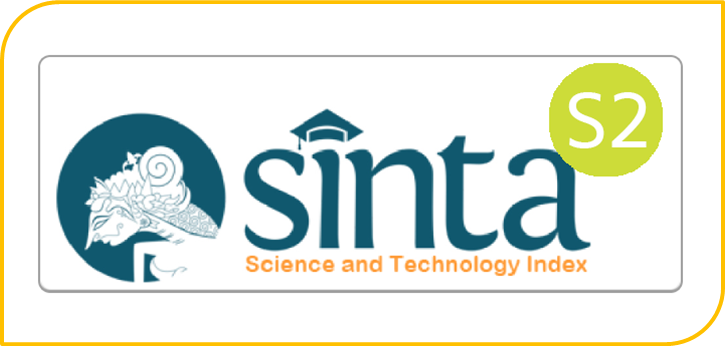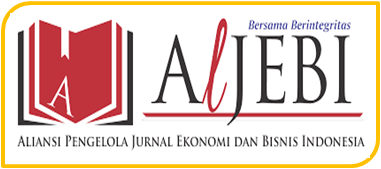ZAKAT, INFAQ AND SHADAQAH (ZIS) DIGITALIZATION: A CASE STUDY USING TECHNOLOGY ORGANIZATION ENVIRONMENT FRAMEWORK
Abstract
Technological disruption has changed the process of collecting zakat, infaq, and shodaqoh (ZIS). These changes can pose both threats and opportunities for ZIS institutions. This study aims to describe the acceptability of ZIS institutional technology from a Technology-Organization-Environment (TOE) perspective. This research is qualitative research with a case study approach. This study uses a data collection method consisting of observation, in-depth interviews, and documentation. Using in-person interviews and via cell phone. The subject of this research is the head of the ZIS institution. The results of the study state that all ZIS institutions have made technological innovations in collecting zakat, infaq, and shodaqoh. The existence of limited human resources and organizations' low acceptance of digital platforms are obstacles to not maximizing digital platforms' use. Strong encouragement from muzakki, government, and digital platform-based ZIS institutions has inspired them to develop technological innovations that suit their needs. This research contributes practically to ZIS institutions that the map of muzakki and donors has begun to change so that technological readiness is the key to the sustainability of ZIS institutions.
Keywords
Full Text:
PDFReferences
Abdullah, M., & Sapiei, N. S. (2018). Do religiosity, gender, and educational background influence zakat compliance ? The case of Malaysia. https://doi.org/10.1108/IJSE-03-2017-0091
Aji, H. M., & Muslichah, I. (2022). Online cross-religion donation during COVID-19: the mediating role of empathy and trust. Journal of Islamic Marketing, ahead-of-print.
Aligarh, F., Nugroho, A., Raharja, B. S., Pratama, B. C., & Wirayuda, A. W. (2020). Do Individual Factors, Religiosity Factors, and Demographic Factors Predict Intention to Pay Zakat? Al-Uqud: Journal of Islamic Economics, 5(1), 151–165.
Alsaad, A., Mohamad, R., & Ismail, N. A. (2019). The contingent role of dependency in predicting the intention to adopt B2B e-commerce. Information Technology for …. https://doi.org/10.1080/02681102.2018.1476830
Andam, A. C., & Osman, A. Z. (2019). Determinants of intention to give zakat on employment income: Experience from Marawi City, Philippines. Journal of Islamic Accounting and Business Research, 10(4), 528–545. https://doi.org/10.1108/JIABR-08-2016-0097
Awa, H. O., Uko, J. P., & Ukoha, O. (2017). An empirical study of some critical adoption factors of ERP software. International Journal of Human …. https://doi.org/10.1080/10447318.2016.1265828
Azman, F. M. N., & Bidin, Z. (2015). Zakat Compliance Intention Behavior on Saving. International Journal of Business and Social Research, 5(1), 118–128.
Behl, A., Dutta, P., Sheorey, P., & Singh, R. K. (2020). Examining the role of dialogic communication and trust in donation-based crowdfunding tasks using information quality perspective. The TQM Journal.
Brennen, J.S. and Kreiss, D. (2016), “Digitalization”, in Jensen, K.B., Rothenbuhler, E.W., Pooley, J.D. and Craig, R.T. (Eds), The International Encyclopedia of Communication Theory and Philosophy, Wiley-Blackwell, Chichester, pp. 556-566
Canggih, C., Fikriyah, K., & Yasin, A. (2017). Inklusi pembayaran zakat di indonesia. Jurnal Ekonomi Dan Bisnis Islam, 3(1), 1–11.
Choi, H., Park, J., Kim, J., & Jung, Y. (2020). Consumer preferences of attributes of mobile payment services in South Korea. Telematics and Informatics, 51, 101397.
Forootani, S., Abdolvand, N., & ... (2022). Factors affecting the adoption of cloud-based CRM in small and medium enterprises. … of Services Technology …. https://doi.org/10.1504/IJSTM.2022.123509
Franque, F. B., Oliveira, T., Tam, C., & Tam, C. (2021). Understanding the factors of mobile payment continuance intention : empirical test in an African context. Heliyon, 7(August), e07807. https://doi.org/10.1016/j.heliyon.2021.e07807
Gillani, F., Ali, K., Shakeel, M., Jajja, S., & Farooq, S. (2020). Implementation of digital manufacturing technologies: Antecedents and consequences. International Journal of Production Economics, 229(2020), 107748. https://doi.org/10.1016/j.ijpe.2020.107748
Haneem, F., Kama, N., Taskin, N., Pauleen, D., Azaliah, N., & Bakar, A. (2019). Determinants of master data management adoption by local government organizations : An empirical study. International Journal of Information Management, 45(April 2018), 25–43. https://doi.org/10.1016/j.ijinfomgt.2018.10.007
Heikal, M. and Khaddafi, M. (2014). The Intention to Pay Zakat Commercial : An Application of Revised Theory of Planned Behavior. Journal of Economics and Behavioral Studies, 6(9), 727–734.
Hudaifah, A., Tutuko, B., & Malik, A. D. (2022). Giving Behaviour of Zakat Donators (Muzaki) through Crowdfunding Platform. Al-Uqud: Journal of Islamic Economics, 6(1), 27–48.
Hussain, A., Shahzad, A., Hassan, R., & ... (2021). COVID-19 impact on B2B e-commerce: A multi-group analysis of sports and surgical SME's. Pakistan Journal of …. https://www.econstor.eu/handle/10419/233772
Ivalaili, I. (2019). Religiusitas dan Pengaruh Faktor Demografi Terhadap Kepatuhan Dalam Berzakat. Al-Urban: Jurnal Ekonomi Syariah Dan Filantropi Islam, 3(1), 1–12. https://doi.org/10.22236/alurban_vol3/is2pp1-11
Karmanto, G. D., Mahri, A. J. W., & Nurasyiah, A. (2021). Society intention in distribution of zakat, infaq and shadaqah (ZIS) through the use of crowdfunding platform. Falah: Jurnal Ekonomi Syariah, 6(1), 30–44.
Kasri, R. A., & Indriani, E. (2021). Empathy or perceived credibility? An empirical study of Muslim donating behaviour through online charitable crowdfunding in Indonesia. International Journal of Islamic and Middle Eastern Finance and Management.
Kasri, R. A., & Yuniar, A. M. (2021). Determinants of digital zakat payments: lessons from Indonesian experience. Journal of Islamic Accounting and Business Research, 12(3), 362–379.
Khalil, N. M., Amin, H., & Azman, N. S. (2020). Compliance Intention to Pay Zakat on Salary. International Journal of Zakat, 5(2), 37–50.
Khayer, A., Talukder, M. S., Bao, Y., & Hossain, M. N. (2020). Cloud computing adoption and its impact on SMEs' performance for cloud supported operations: A dual-stage analytical approach—technology in Society, 60, 101225.
Lekmat, L. (2018). Antecedents of e-commerce adoption in Thai SMEs. In UTCC International Journal of Business and …. ijbejournal.com. http://www.ijbejournal.com/images/files/800197025c5d524c6105b.pdf
Manara, A. S., Permata, A. R. E., & Pranjoto, R. G. H. (2018). Strategy model for increasing the potential of zakat through the crowdfunding-zakat system to overcome poverty in Indonesia. International Journal of Zakat, 3(4), 17–31.
Martono, S., Nurkhin, A., Lutfhiyah, F., & Rofiq, A. (2019). The Relationship Between Knowledge, Trust, Intention to Pay Zakah, and Zakah-Paying Behavior. 10(2), 75–81. https://doi.org/10.5430/ijfr.v10n2p75
Montgomery, N., Squires, G., & Syed, I. (2018). Disruptive potential of real estate crowdfunding in the real estate project finance industry: A literature review. Property Management.
Mubtadi, N. A. (2019). Analysis of Islamic accountability and Islamic governance in zakat institution. Hasanuddin Economics and Business Review, 3(1), 1–12.
Mukhlis, A., & Beik, I. S. (2013). Analisis Faktor-faktor yang Memengaruhi Tingkat Kepatuhan Membayar Zakat: Studi Kasus Kabupaten Bogor. Al-Muzara’ah, 1(1), 83–106. https://doi.org/10.29244/jam.1.1.83-106
Naushad, M., & Sulphey, M. M. (2020). Prioritizing technology adoption dynamics among SMEs. In TEM Journal. researchgate.net. https://www.researchgate.net/profile/Mohammad-Naushad/publication/344042987_Prioritizing_Technology_Adoption_Dynamics_among_SMEs/links/5f4f6e3692851c250b88e7a4/Prioritizing-Technology-Adoption-Dynamics-among-SMEs.pdf
Ngah, A. H., Zainuddin, Y., & Thurasamy, R. (2015). Barriers and enablers in adopting of Halal warehousing. Journal of Islamic Marketing. https://doi.org/10.1108/JIMA-03-2014-0027
Pateli, A., Mylonas, N., & Spyrou, A. (2020). Organizational adoption of social media in the hospitality industry: An integrated approach based on DIT and TOE frameworks. Sustainability. https://www.mdpi.com/814460
Patil, P., Tamilmani, K., Rana, N. P., & Raghavan, V. (2020). International Journal of Information Management Understanding consumer adoption of mobile payment in India : Extending Meta-UTAUT model with personal innovativeness, anxiety, trust, and grievance redressal. International Journal of Information Management, 54(February), 102144. https://doi.org/10.1016/j.ijinfomgt.2020.102144
Pratama, S. D., & Yuni, R. N. (2020). Reducing Poverty through Optimization of Zakat on Agricultural and Profession. International Journal of Islamic Economics and Finance (IJIEF), 3(SI), 145–174.
Pratono, A. H., Prima, D. A., Sinaga, N. F. N. T., Permatasari, A., Ariani, M., & Han, L. (2020). Crowdfunding in digital humanities: some evidence from Indonesian social enterprises. Aslib Journal of Information Management, 72(2), 287–303.
Puklavec, B., Oliveira, T., & Popovič, A. (2018). Understanding the determinants of business intelligence system adoption stages: An empirical study of SMEs. Industrial Management & Data …. https://doi.org/10.1108/IMDS-05-2017-0170
Putratama, S.H. & Ali. (2020). Adoption Of Free/Open Source Software Products In Healthcare Industry: An Indonesian Case Study. Jurnal Reviu Akuntansi dan Keuangan, 10(1), 161-176.
Qalati, S. A., Li, W., Ahmed, N., Mirani, M. A., & Khan, A. (2020). Examining the factors affecting SME performance: the mediating role of social media adoption. Sustainability. https://www.mdpi.com/934244
Rachinger, M., Rauter, R., Müller, C., Vorraber, W., & Schirgi, E. (2018). Digitalization and its influence on business model innovation. Journal of Manufacturing Technology Management, 30(8), 1143-1160.
Ruivo, P., Oliveira, T., & Neto, M. (2014). Examine ERP post-implementation stages of use and value : Empirical evidence from Portuguese SMEs. International Journal of Accounting Information Systems, 15(2), 166–184. https://doi.org/10.1016/j.accinf.2014.01.002
Sadallah, M., Abdul-Jabbar, H., & Aziz, S. A. (2022). Promoting zakat compliance among business owners in Algeria: the mediation effect of compliance intention. Journal of Islamic Marketing, ahead-of-print.
Salido-Andres, N., Rey-Garcia, M., Alvarez-Gonzalez, L. I., & Vazquez-Casielles, R. (2021). When the winner takes it all: online campaign factors influencing the success of donation-based crowdfunding for charitable causes. International Review on Public and Nonprofit Marketing, 1–18.
Salimon, M. G., Kareem, O., Mokhtar, S. S. M., & ... (2021). Malaysian SMEs m-commerce adoption: TAM 3, UTAUT 2 and TOE approach. … and Technology …. https://doi.org/10.1108/JSTPM-06-2019-0060
Sedjati, D., & Basri, Y. (2018). Analisis Faktor-Faktor Yang Mempengaruhi Pembayaran Zakat Di Daerah Khusus Ibukota (DKI) Jakarta. Jurnal Internasional Bisnis & Manajemen Indonesia, 6(1), 92–100.
Shankar, A., & Datta, B. (2018). Factors affecting mobile payment adoption intention: An Indian perspective. Global Business Review, 19(3_suppl), S72–S89.
Shetty, J. P., & Panda, R. (2022). Cloud adoption in Indian SMEs–an empirical analysis. Benchmarking: An International Journal. https://doi.org/10.1108/BIJ-08-2021-0468
Shree, D., Kumar, R., Paul, J., Hao, A., & Xu, S. (2021). Digital platforms for business-to-business markets : A systematic review and future research agenda. Journal of Business Research, 137(February), 354–365. https://doi.org/10.1016/j.jbusres.2021.08.031
Siew, E.-G., Rosli, K., & Yeow, P. H. P. (2020). Organizational and environmental influences in the adoption of computer-assisted audit tools and techniques (CAATTs) by audit firms in Malaysia. International Journal of Accounting Information Systems, 36, 100445
Sukmana, R., Trianto, B., & Zaimsyah, A. M. (2022). Determinant factor of crowdfunders' behavior in using crowdfunding waqf model in Indonesia: two competing models. Journal of Islamic Marketing, ahead-of-print.
Tajuddin, TS, Azman, A., & Syamsuddin, N. (2015). Perilaku Kepatuhan Zakat pada Pendapatan Gaji Pemuda Muslim di Lembah Klang. E-Prosiding Konferensi Internasional Penelitian Ilmu Sosial, ICSSR 2015.
Tajudeen, F. P., Jaafar, N. I., & Ainin, S. (2018). Understanding the impact of social media usage among organizations. Information & Management. https://www.sciencedirect.com/science/article/pii/S0378720617307152
Thottoli, M. M. (2022). The starring role of crowdfunding in GCC: a structured literature review. Asian Journal of Economics and Banking, ahead-of-print.
Wahyudi, M., Herianingrum, S., & Ratnasari, R. T. (2021). Accountability Practices Based on Zakat Institutions Website in Indonesia. Jurnal Riset Akuntansi Dan Keuangan, 9(3), 459–466.
Yin, RK (2014). Case Study Research: Design and Methods. Sage Publications (Vol. 26). https://doi.org/10.1097/FCH.0b013e31822dda9e
Yusfiarto, R., Setiawan, A., & Nugraha, S. S. (2020). Literacy and Intention to Pay Zakat : A Theory Planned Behavior View Evidence from Indonesian Muzakki. International Journal of Zakat, 5(1), 15–27.
Zhao, L., & Sun, Z. (2019). Pure donation or hybrid donation crowdfunding: Which model is more conducive to prosocial campaign success? Baltic Journal of Management.
Zhao, Y. (2021). How Does the Pandemic Facilitate Mobile Payment ? An Investigation on Users' Perspective under the COVID-19 Pandemic.
Zhou, H., & Ye, S. (2021). Fundraising in the digital era: Legitimacy, social network, and political ties matter in China. VOLUNTAS: International Journal of Voluntary and Nonprofit Organizations, 32(2), 498–511.
DOI: https://doi.org/10.18860/ed.v11i1.18916
Refbacks
- There are currently no refbacks.
Editorial Office:
Megawati Soekarnoputri Building
Faculty of Economics
E-mail: eldinar@uin-malang.ac.id
Universitas Islam Negeri Maulana Malik Ibrahim Malang
E-ISSN 2622-0083

El Dinar under a CC BY SA 4.0 International License.
Member of:
Indexed By:

















